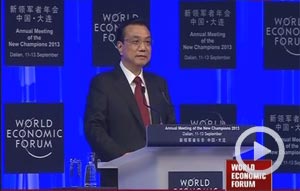America's breaking dream
Updated: 2013-09-13 07:15
By Carol Graham (China Daily)
|
||||||||
The United States has long been seen as the "land of opportunity", where people who work hard get ahead. Belief in this fundamental feature of America's national identity has persisted, even though inequality has been gradually rising for decades. In recent years, however, the trend toward extremes of income and wealth has accelerated significantly, because of demographic shifts, the economy's skills bias, and fiscal policy. Is the collapse of the American dream at hand?
From 1997 to 2007, the share of income accruing to the top 1 percent of US households increased by 13.5 percent. This is equivalent to shifting $1.1 trillion of Americans' total annual income to these families - more than the total income of the bottom 40 percent of US households.
Inequality's precise impact on individual well-being remains controversial, partly because of the complex nature of the metrics needed to gauge it accurately. But, while objective indicators do not provide a complete picture of the relationship between income inequality and human well-being, how they are interpreted sends important signals to people within and across societies.
If inequality is perceived to be the result of just reward for individual efforts, it can be a constructive signal of future opportunities. But if it is perceived to be the result of an unfair system that rewards a privileged few, inequality can undermine individuals' motivation to work hard and invest in the future.
In this sense, current US trends have been largely destructive. Economic mobility, for example, has declined in recent decades, and is now lower in many other industrialized countries as well, including Canada, Finland, Germany, Japan and New Zealand. An American worker's initial position in the income distribution is highly predictive of his or her future earnings.
Moreover, there is a strong inter-generational income correlation (about 0.5) in the US, with the children of parents who earn, say, 50 percent more than the average likely to earn 25 percent above their generation's average. Indeed, the US now lies near the middle of the World Bank's ranking of economic opportunity, well below countries like Norway, Italy, Poland and Hungary.
Some argue that, as long as the US maintains its economic dynamism, leadership in technological innovation and attractiveness to immigrants, income inequality will remain irrelevant. But other pertinent trends - such as failing public schools, crumbling infrastructure, rising crime rates and ongoing racial disparity in access to opportunities - seem to refute such claims. After all, having some of the world's top universities means little if access to them is largely a function of family income.
This does not matter only to Americans. In a world in which individuals' fates are increasingly linked, and effective governance depends on some consensus on norms of social and distributive justice, growing income differentials in one country - especially one that has long served as a beacon of economic opportunity - can shape behavior elsewhere. Without the belief that hard work begets opportunity, people are less likely to invest in education, undermining labor-market development; they may even be driven to protest.
More generally, declining economic mobility in the US could undermine confidence in the principles of a market economy and democratic governance that America has espoused for decades - principles that are fundamental to many countries' development strategies. As Nobel laureate Joseph Stiglitz has said: "(T)he extent to which the global economy and polity can be shaped in accord with our values and interests will depend, to a large extent, on how well our economic and political system is performing for most citizens." Given increasing evidence that the system is performing much better for wealthier citizens than for poorer ones, America's soft power seems bound to erode substantially.
Reducing inequality will require long-term, comprehensive solutions, such as fiscal-policy reforms that reward public investment in healthcare and education without adding disincentives to an already cumbersome tax code. But pursuing such measures requires significant political will, which the US seems to be lacking.
Indeed, given the political paralysis at the national level, initiating a constructive debate about an issue as divisive and consequential as inequality will depend largely on the American public. If more people recognize the constraints that inequality places on their future prospects, the more likely are they to press policymakers to confront it. This would not only benefit the US; it would also have a positive impact on global governance.
Americans have long prided themselves on their country's status as the land of opportunity, a destination that people have endured immeasurable adversity to reach. A public education campaign aimed at highlighting the challenges that inequality poses to the very foundation of this reputation is a low-risk first step toward reviving America's promise.
The author is Leo Pasvolsky senior fellow at the Brookings Institution and College Park professor at the University of Maryland's School of Public Policy.
Project Syndicate
(China Daily 09/13/2013 page9)
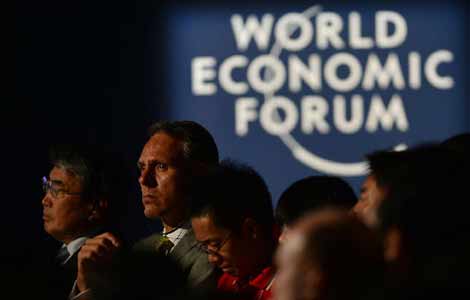
 Experts discuss Chinese premier's economic plan
Experts discuss Chinese premier's economic plan
 Voyager 1 has left solar system: NASA
Voyager 1 has left solar system: NASA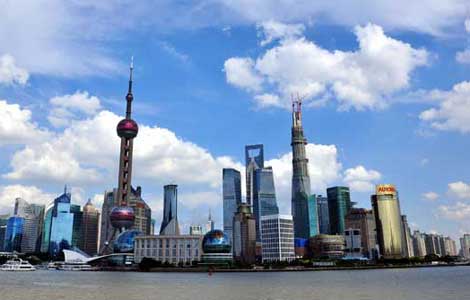
 Time of opportunities, challenges
Time of opportunities, challenges
 Plenty of fizz
Plenty of fizz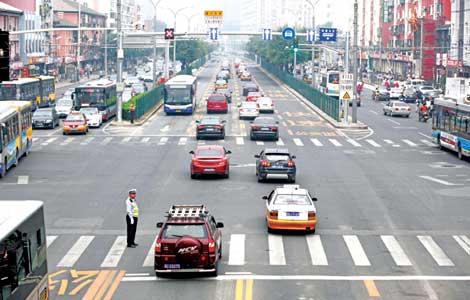
 Traffic about-face seeks to ease congestion
Traffic about-face seeks to ease congestion
 Another iPhone4 explodes while charging
Another iPhone4 explodes while charging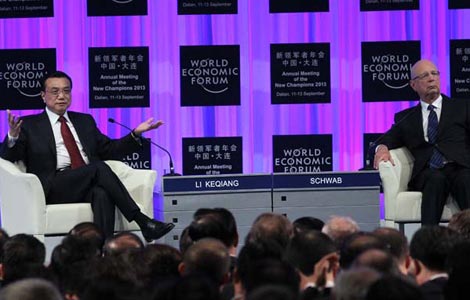
 Premier stresses transformation of the economy
Premier stresses transformation of the economy
 Soyuz capsule returns from space station
Soyuz capsule returns from space station
Most Viewed
Editor's Picks

|

|

|

|

|

|
Today's Top News
Xi welcomes talks on Iran nuclear issue
US moves against China firms criticized
3 sentenced to death for Xinjiang terror attack
Assad agrees to hand over chemical weapons
Time of opportunities, challenges
China sets caps for rare earths exploration
Ending non-tariff barriers benefits global economy
Developing nations need shift to balanced growth
US Weekly

|

|
